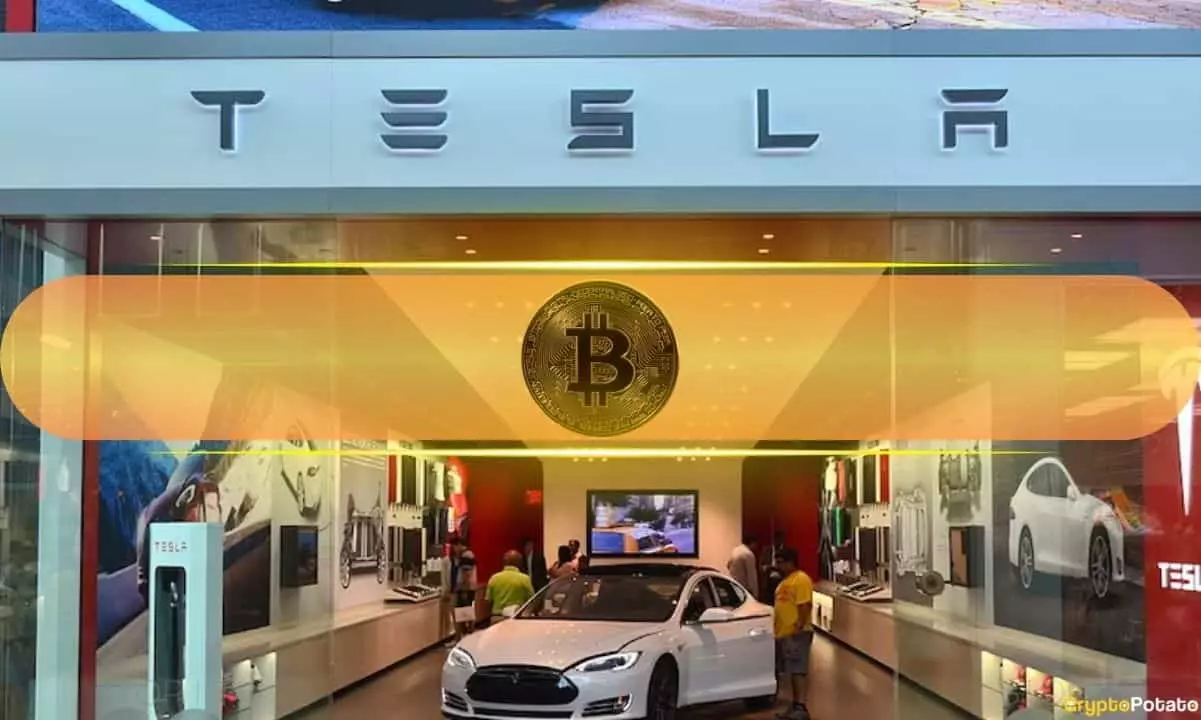Recently, Tesla has initiated significant movement concerning its Bitcoin holdings, as revealed by Arkham Intelligence. The company, led by entrepreneur Elon Musk, moved its entire stash of 11,500 BTC, valued at approximately $760 million, after a period of dormancy spanning two years. On October 15, a series of 26 transactions were executed, with the ultimate outcome being a wallet balance of zero. This sudden action has elicited a whirlwind of reactions within the cryptocurrency community, highlighting the interplay between corporate movements and market sentiment.
Following Tesla’s transactions, Bitcoin prices exhibited notable volatility. Within hours of the news breaking, speculations began circulating widely on crypto-related social media platforms. The narrative ranged from fears about a potential liquidation to conjectures surrounding Tesla’s plans to reintroduce Bitcoin as a payment option. Notably, there were even humorous comments suggesting that Musk might pivot towards less mainstream cryptocurrencies, known as “Trump meme coins.” In contrast to these unfounded fears, industry voices like Pierre Rochard of Riot Platforms underscored the possibility of Tesla utilizing its Bitcoin as collateral for borrowing, even as disclaimers surfaced emphasizing Tesla’s robust cash position.
Industry analysts are divided regarding the implications of Tesla’s move. CryptoQuant’s CEO, Ki Young Ju, pointed out the ambiguity of whether the transactions were mere internal reallocation or an offloading of assets. He noted that even a sale would not significantly disrupt the market, highlighting that Tesla’s holdings represent less than half of what the German government possesses in Bitcoin. Meanwhile, trader ‘Cold Blooded Shiller’ expressed a skeptical view of the panic surrounding the transaction, suggesting that if Tesla’s actions were enough to shake investors out of their positions, those investors might not have the fortitude to withstand more substantial market movements.
Tesla is recognized as a significant player in the Bitcoin space, currently ranking as the fourth largest corporate holder of Bitcoin, trailing major firms such as MicroStrategy and Marathon Digital. The company’s initial investment in Bitcoin occurred in February 2021 when it purchased $1.5 billion of the cryptocurrency. This strategic position places Tesla at a unique vantage point within the cryptocurrency ecosystem, influencing market trends through its decision-making processes.
In the aftermath of the Bitcoin movements, Tesla’s stock (TSLA) experienced minor fluctuations, holding steady around the $220 mark throughout the week. However, Bitcoin itself is nearing a psychologically significant threshold—its previous all-time high of $69,000, set during the 2021 bull market cycle. The recent movements highlight the interconnectedness of corporate actions and digital asset valuations, revealing how a single firm can inadvertently stir the waters of the cryptocurrency market.
Tesla’s Bitcoin transactions ignited a frenzy of speculation and analysis within the cryptocurrency market. Whether viewed as mere logistical maneuvering or a strategy steeped in broader financial implications, these actions underscore the nuanced relationship between corporate finance and market dynamics. As the landscape evolves, stakeholders will continue to monitor these developments closely, aware of their potential impact on future market trajectories.

